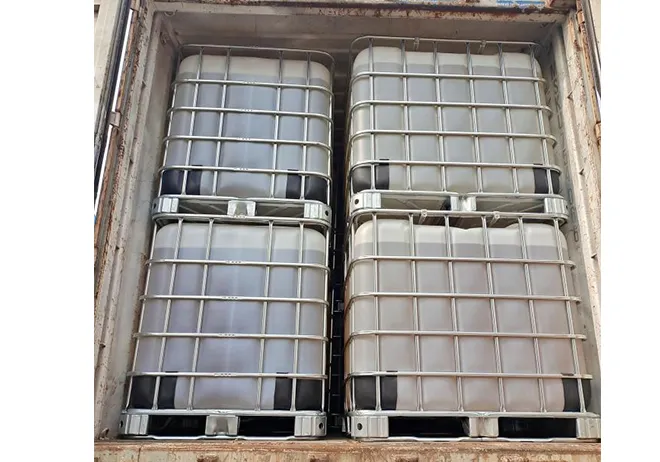
sodium benzoate halal
Is Sodium Benzoate Halal? Understanding Its Status in the Food Industry
Sodium benzoate, a widely utilized food preservative, has garnered attention in recent years as consumers become more conscious of the ingredients in their food. This compound, the sodium salt of benzoic acid, is commonly used to prevent the growth of mold, yeast, and bacteria in various food products. With the increasing interest in halal dietary compliance, one question that often arises is whether sodium benzoate is halal.
To determine the halal status of sodium benzoate, we must first understand its source and manufacturing process. Sodium benzoate can be synthesized from benzoic acid, which can be derived from natural sources, such as the benzoin tree, or produced synthetically from toluene, a petrochemical compound. Halal certification hinges on the origins of the raw materials used and the production methods involved.
Is Sodium Benzoate Halal? Understanding Its Status in the Food Industry
The halal status of sodium benzoate has also been recognized by various halal certification bodies. Many food manufacturers have opted for halal certification to cater to a growing market of conscientious consumers. This is particularly relevant in regions with significant Muslim populations, where the demand for halal products is steadily increasing.
sodium benzoate halal

It’s essential to examine the finished product as well. If a food item that contains sodium benzoate is otherwise made with halal ingredients and has been produced in a halal-compliant environment, the product as a whole can be considered halal. However, consumers must remain vigilant and check for halal certification marks on the packaging to ensure they are making informed choices.
Moreover, sodium benzoate itself does not pose any health risks when consumed in regulated amounts. The FDA has deemed it safe for use in food products, and it is also recognized by the European Food Safety Authority (EFSA) as a food additive. However, excessive consumption of sodium benzoate has been linked to concerns such as hyperactivity in children and potential allergic reactions. Therefore, moderation is key, irrespective of the halal status.
Additionally, the perception of sodium benzoate varies among consumers. Some prefer to avoid synthetic preservatives altogether, opting instead for natural alternatives like vinegar or citric acid. Others may be more concerned with the halal status of their food than with the presence of preservatives. These perspectives emphasize the importance of transparent labeling and clear communication from food manufacturers regarding the ingredients and sourcing of their products.
In conclusion, the halal status of sodium benzoate largely depends on the source of its raw materials and the methods used in its production. While sodium benzoate itself can be halal, it is crucial for consumers to look for halal certifications and to be aware of the overall composition of the foods they consume. As awareness of halal dietary needs continues to grow, food manufacturers are encouraged to maintain transparency in their ingredient sourcing and labeling practices. This ensures that consumers can make informed choices that align with their dietary requirements, ultimately contributing to a more health-conscious and culturally respectful food industry.
-
Why Glacial Acetic Acid Food Grade Is Essential in FlavorNewsMay.26,2025
-
Surging Export Growth of Food Additives in ChinaNewsMay.26,2025
-
How Ammonium Nitrate Fertilizer Boosts Crop YieldsNewsMay.26,2025
-
How 1,2,3-Benzotriazole Shields Plastics from UV DegradationNewsMay.26,2025
-
Cyanide in Gold Mining: Protecting People and the PlanetNewsMay.26,2025
-
Aluminum Hydroxide in Modern Sunscreen FormulationsNewsMay.26,2025
-
Understanding Synthetic Rubber OptionsNewsApr.27,2025
Hebei Tenger Chemical Technology Co., Ltd. focuses on the chemical industry and is committed to the export service of chemical raw materials.
-

view more DiethanolisopropanolamineIn the ever-growing field of chemical solutions, diethanolisopropanolamine (DEIPA) stands out as a versatile and important compound. Due to its unique chemical structure and properties, DEIPA is of interest to various industries including construction, personal care, and agriculture. -

view more TriisopropanolamineTriisopropanolamine (TIPA) alkanol amine substance, is a kind of alcohol amine compound with amino and alcohol hydroxyl, and because of its molecules contains both amino and hydroxyl. -

view more Tetramethyl Thiuram DisulfideTetramethyl thiuram disulfide, also known as TMTD, is a white to light-yellow powder with a distinct sulfur-like odor. It is soluble in organic solvents such as benzene, acetone, and ethyl acetate, making it highly versatile for use in different formulations. TMTD is known for its excellent vulcanization acceleration properties, which makes it a key ingredient in the production of rubber products. Additionally, it acts as an effective fungicide and bactericide, making it valuable in agricultural applications. Its high purity and stability ensure consistent performance, making it a preferred choice for manufacturers across various industries.











